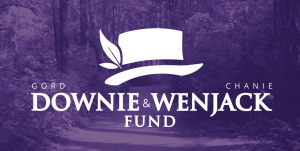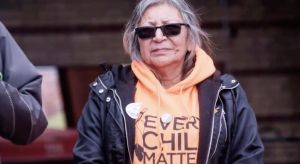Sarah Midanik is the President and CEO of the Gord Downie and Chanie Wenjack fund, where Indigenous allyship is at the center of everything they do. Their goal is to improve the lives of Indigenous peoples by building awareness, education, and connections between all peoples in Canada.
The Gord Downie and Chanie Wenjack fund aims to build cultural understanding and create a path toward reconciliation between Indigenous and non-Indigenous peoples.
You may be asking, what does it mean to be an Indigenous Ally? Allyship means being brave, speaking up, and leaning into the feelings of discomfort. What has happened can’t be changed, but society is still making some of the same mistakes.
We need to hold spaces to listen to Indigenous stories and create opportunities for those voices to be heard. ReconcilliACTION – create a space for engagement and act as the catalyst for important conversations and meaningful change.
Here are 3 actionable ways you can be an ally in your community:
Allyship in the classroom
- Incorporate Indigenous history into the curriculum. If you are non-Indigenous and aren’t sure how there are resources available through the Gord Downie & Chanie Wenjack fund.
- Reach out to local elders to learn more and ask questions and invite them to speak.
- North Vancouver Schools are leading the way in setting the example for other school boards in how to show allyship in the classroom. We must ensure the next generation is aware of the truth so that we can continue on a journey of reconciliation together.
Allyship in the workplace
- Allyship in the workplace is a combination of holding space for Indigenous voices and creating opportunities.
- Have a reconciliation policy, indigenous policy resource group, and procurement targets.
- Boardrooms specifically- have Indigenous voices and perspectives at the table, equity and diversity inclusion policy, corporate strategies.
Allyship in the community
- It can be as simple as reading the ‘Truth and Reconciliation Commission’s 94 Calls to Action’, finding one that resonates with you, and acting on it
- Finding out which Indigenous territory you live on
- Reading Indigenous authors
- Taking the time to educate yourself and understand the truth that needs to come before reconciliation.







